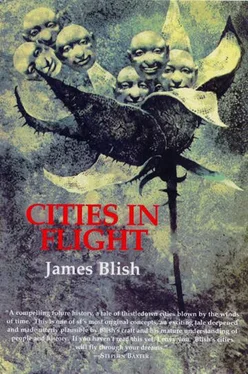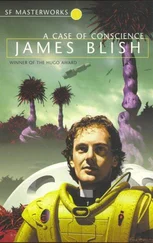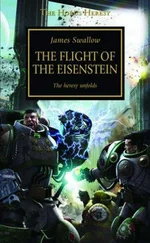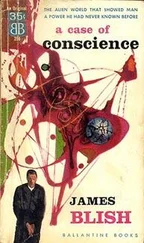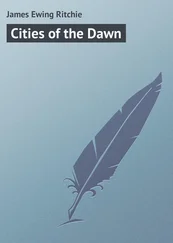James Blish - Cities in Flight
Здесь есть возможность читать онлайн «James Blish - Cities in Flight» весь текст электронной книги совершенно бесплатно (целиком полную версию без сокращений). В некоторых случаях можно слушать аудио, скачать через торрент в формате fb2 и присутствует краткое содержание. Жанр: Фантастика и фэнтези, на английском языке. Описание произведения, (предисловие) а так же отзывы посетителей доступны на портале библиотеки ЛибКат.
- Название:Cities in Flight
- Автор:
- Жанр:
- Год:неизвестен
- ISBN:нет данных
- Рейтинг книги:4 / 5. Голосов: 1
-
Избранное:Добавить в избранное
- Отзывы:
-
Ваша оценка:
- 80
- 1
- 2
- 3
- 4
- 5
Cities in Flight: краткое содержание, описание и аннотация
Предлагаем к чтению аннотацию, описание, краткое содержание или предисловие (зависит от того, что написал сам автор книги «Cities in Flight»). Если вы не нашли необходимую информацию о книге — напишите в комментариях, мы постараемся отыскать её.
Cities in Flight — читать онлайн бесплатно полную книгу (весь текст) целиком
Ниже представлен текст книги, разбитый по страницам. Система сохранения места последней прочитанной страницы, позволяет с удобством читать онлайн бесплатно книгу «Cities in Flight», без необходимости каждый раз заново искать на чём Вы остановились. Поставьте закладку, и сможете в любой момент перейти на страницу, на которой закончили чтение.
Интервал:
Закладка:
“I want it clearly understood, once and for all,” Horsefield was rumbling, “that this entire project is going to wind up under military control unless we can show results before it’s time to ask for a new appropriation. There’s still a lot going on here that the Pentagon will regard as piddling inefficiency and highbrow theorizing. And if that’s what the Pentagon reports, you know what the Treasury will do—or Congress will do it for them. We’re going to have to cut back, Gunn. Understand? Cut right back to basics!”
“General, we’re as far back to basics as we possibly can get,” Harold Gunn said, placatingly enough, but with considerable firmness as well. “We’re not going to put a gram of that drug into production until we’re satisfied with it on all counts. Any other course would be suicide.”
“You know I’m on your side,” Horsefield said, his voice becoming somewhat less threatening. “So is General Alsos, for that matter. But this is a war we’re fighting, whether the public understands it or not And on as sensitive a matter as these death-dopes, we can’t afford—”
Gunn, who had spotted Paige belatedly at the conclusion of his own speech, had been signaling Horsefield ever since with his eyebrows, and suddenly it took. The general swung around and glared at Paige, who, since he was uncovered now, was relieved of the necessity for saluting. Despite the sudden freezing silence, it was evident that Gunn was trying to retain in his manner toward Paige some shreds of professional cordiality—a courtesy which Paige was not too sure he merited, considering the course his conversation with the girl had taken.
As for Horsefield, he relegated Paige to the ghetto of “unauthorized persons” with a single look. Paige had no intention of remaining in that classification for a second longer than it would take him to get out of it, preferably without having been asked his name; it was deadly dangerous. With a mumbled “—at eight, then,” to the girl, Paige sidled ingloriously out of the Pfitzner reception room and beat it
He was, he reflected later in the afternoon before his shaving mirror, subjecting himself to an extraordinary series of small humiliations, to get close to a matter which was none of his business. Worse: it was obviously Top Secret, which made it potentially lethal even for everyone authorized to know about it, let alone for rank snoopers. In the Age of Defense, to know was to be suspect, in the West as in the USSR; the two great nation-complexes had been becoming more and more alike in their treatment of “security” for the past fifty years. It had even been a mistake to mention the Bridge on Jupiter to the girl—for despite the fact that everyone knew that the Bridge existed, anyone who spoke of it with familiarity could quickly earn the label of being dangerously flap-jawed. Especially if tie speaker, like Paige, had actually been stationed in the Jovian system for a while, whether he had had access to information about the Bridge or not.
And especially if the talker, like Paige, had actually spoken to the Bridge gang, worked with them on marginal projects, was known to have talked to Charity Dillon, the Bridge foreman. More especially if he held military rank, making it possible for him to sell security files to Congressmen, the traditional way of advancing a military career ahead of normal promotion schedules.
And most especially if the man was discovered nosing about a new and different classified project, one to which he hadn’t even been assigned.
Why, after all, was he taking the risk? He didn’t even know the substance of the matter; he was no biologist. To all outside eyes the Pfitzner project was simply another piece of research in antibiotics, and a rather routine research project at that. Why should a spaceman like Paige find himself flying so close to the candle already?
He wiped the depilatory cream off his face into a paper towel and saw his own eyes looking back at him from the concave mirror, as magnified as an owl’s. The image, however, was only his own, despite the distortion. It gave him back no answer.
CHAPTER TWO: Jupiter V
… it is the plunge through the forbidden zones that catches the heart with its sheer audacity. In the history of life there have been few such episodes. It is that which makes us lonely. We have entered a new corridor, the cultural corridor. There has been nothing here before us. In it we are utterly alone. In it we are appallingly unique. We look at each other and say, “It can never be done again.”
—LOOREN C. ELSELEYASCREECHING tornado was rocking the Bridge when the alarm sounded; the whole structure shuddered and swayed. This was normal, and Robert Helmuth on Jupiter V barely noticed it. There was always a tornado shaking the Bridge. The whole planet was enswathed in tornadoes and worse.
The scanner on the foreman’s board was given 114 as the sector where the trouble was. That was at the northwestern end of the Bridge, where it broke off, leaving nothing but the raging clouds of ammonia crystals and methane, and a sheer drop thirty miles down to the invisible surface. There were no ultra-phone “eyes” at that end to show a general view of the area—in so far as any general view was possible—because both ends of the Bridge were incomplete.
With a sigh, Helmuth put the beetle into motion. The little car, as flat-bottomed and thin through as a bedbug, got slowly under way on its ball-bearing races, guided and held firmly to the surface of the Bridge by ten close-set flanged rails. Even so, the hydrogen gales made a terrific siren-like shrieking between the edge of the vehicle and the deck, and the impact of the falling drops of ammonia upon the curved roof was as heavy and deafening as a rain of cannon balls. In fact, the drops weighed almost as much as cannon balls there under Jupiter’s two-and-a-half-fold gravity, although they were not much bigger than ordinary raindrops. Every so often, too, there was a blast, accompanied by a dull orange glare, which made the car, the deck, and the Bridge itself buck savagely; even a small shock wave traveled through the incredibly dense atmosphere of the planet like the armor-plate of a bursting battleship.
These blasts were below, however, on the surface. While they shook the structure of the Bridge heavily, they almost never interfered with its functioning. And they could not, in the very nature of things, do Helmuth any harm.
Helmuth, after all, was not on Jupiter—though that was becoming harder and harder for him to bear in mind. Nobody was on Jupiter; had any real damage ever been done to the Bridge, it probably would never have been repaired. There was nobody on Jupiter to repair it; only the machines which were themselves part of the Bridge.
The Bridge was building itself. Massive, alone, and lifeless, it grew in the black deeps of Jupiter.
It had been well planned. From Helmuth’s point of view—that of the scanners on the beetle—almost nothing could be seen of it, for the beetle tracks ran down the center of the deck, and in the darkness and perpetual storm even ultrawave-assisted vision could not penetrate more than a few hundred yards at the most. The width of the Bridge, which no one would ever see, was eleven miles; its height, as incomprehensible to the Bridge gang as a skyscraper to an ant, thirty miles; its length, deliberately unspecified in the plans, fifty-four miles at the moment and still increasing—a squat, colossal structure, built with engineering principles, methods, materials and tools never touched before now ….
For the very good reason that they would have been impossible anywhere else. Most of the Bridge, for instance, was made of ice: a marvelous structural material under a pressure of a million atmospheres, at a temperature of 94° below zero Fahrenheit. Under such conditions, the best structural steel is a friable, talc-like powder, and aluminum becomes a peculiar transparent substance that splits at a tap; water, on the other hand, becomes Ice IV, a dense, opaque white medium which will deform to a heavy stress, but will break only under impacts huge enough to lay whole Earthly cities waste. Never mind that it took millions of megawatts of power to keep the Bridge up and growing every hour of the day; the winds on Jupiter blow at velocities up to twenty-five thousand miles per hour, and will never stop blowing, as they may have been blowing for more than four billion years; there is power enough.
Читать дальшеИнтервал:
Закладка:
Похожие книги на «Cities in Flight»
Представляем Вашему вниманию похожие книги на «Cities in Flight» списком для выбора. Мы отобрали схожую по названию и смыслу литературу в надежде предоставить читателям больше вариантов отыскать новые, интересные, ещё непрочитанные произведения.
Обсуждение, отзывы о книге «Cities in Flight» и просто собственные мнения читателей. Оставьте ваши комментарии, напишите, что Вы думаете о произведении, его смысле или главных героях. Укажите что конкретно понравилось, а что нет, и почему Вы так считаете.
